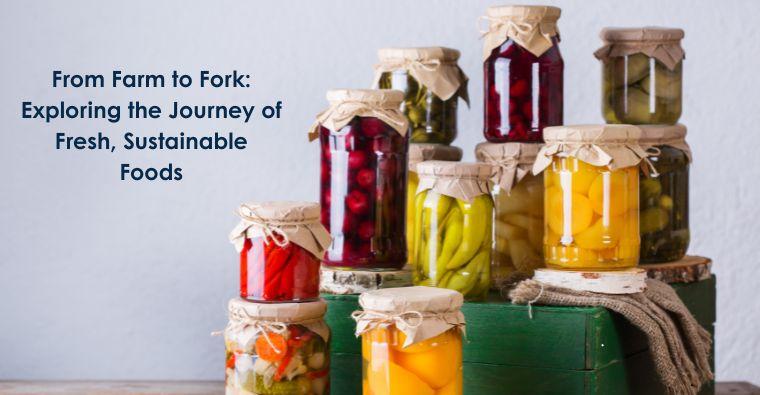Seasonal foods are typically fresher and more nutrient-dense than out-of-season produce. When fruits and vegetables are harvested at their peak ripeness, they contain higher levels of vitamins, minerals, and antioxidants. For example, summer tomatoes are rich in lycopene, while winter squashes are packed with beta-carotene. Eating a variety of seasonal foods ensures a diverse intake of essential nutrients throughout the year.
Superior Taste and Quality
There’s a noticeable difference in taste and quality between seasonal and non-seasonal produce. Seasonal foods are harvested at their peak, resulting in superior flavor and texture. Think of the sweetness of a strawberry in June or the crispness of an apple in October. These vibrant flavors can elevate your meals and encourage you to enjoy more fruits and vegetables.
Environmental Benefits
Eating seasonal foods is an environmentally friendly choice. Seasonal produce requires fewer resources to grow, as it is cultivated under optimal conditions. This reduces the need for artificial heating, cooling, and long-distance transportation, which lowers the carbon footprint. Additionally, supporting seasonal eating encourages sustainable farming practices and helps preserve biodiversity.
Economic Support for Local Farmers
Purchasing seasonal foods from local markets supports small-scale farmers and the local economy. Farmers’ markets and community-supported agriculture (CSA) programs often feature seasonal produce, allowing consumers to buy directly from growers. This direct connection can foster a sense of community and ensure that farmers receive fair compensation for their work.
Variety and Creativity in the Kitchen
Embracing seasonal foods introduces variety into your diet and encourages culinary creativity. Each season brings a new array of ingredients, inspiring you to explore different recipes and cooking techniques. Spring might bring fresh asparagus and peas, while autumn offers an abundance of pumpkins and root vegetables. This ever-changing palette of flavors keeps meals exciting and nutritious.
Cost-Effective Eating
Seasonal foods are often more affordable than out-of-season produce. When fruits and vegetables are in season, they are more plentiful and less expensive to grow, resulting in lower prices for consumers. By focusing on seasonal ingredients, you can enjoy high-quality produce without breaking the bank.
Connection to Nature and Traditions
Eating seasonally connects us to the natural cycles of the earth and traditional agricultural practices. It fosters an appreciation for the changing seasons and the unique offerings each one brings. Many cultures have long-standing culinary traditions based on seasonal foods, and embracing these practices can enrich your understanding and enjoyment of food.
Tips for Eating Seasonally
Visit Farmers’ Markets: Explore local farmers’ markets to find fresh, seasonal produce.
Join a CSA Program: Consider subscribing to a CSA program to receive a regular supply of seasonal fruits and vegetables.
Grow Your Own: If possible, start a garden to grow your own seasonal produce.
Learn What’s in Season: Educate yourself on which foods are in season in your region to make informed choices.
Experiment with Recipes: Try new recipes that highlight seasonal ingredients to keep your meals interesting and nutritious.
Eating seasonal foods is a practice that benefits your health, the environment, and local economies. It offers superior taste and nutritional value, supports sustainable farming, and fosters a connection to nature and culinary traditions. By making a conscious effort to eat seasonally, you can enjoy a richer, more flavorful, and environmentally friendly diet. So, embrace nature’s harvest and discover the many rewards of seasonal eating.




